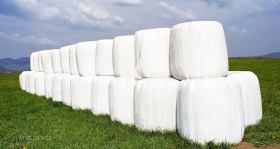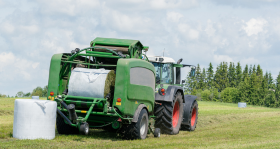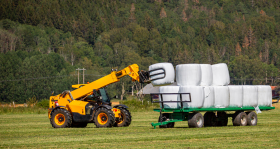services overview

Silage Production and Supply
Bulk Silage Supply: Providing high-quality silage in bulk quantities for large farms and cooperatives.
Pre-packed Silage: Offering silage in convenient packaging sizes for small to medium-sized farms.
Pre-packed Silage: Offering silage in convenient packaging sizes for small to medium-sized farms.

Silage Machinery Sales and Leasing
Silage chaff cutter: Sales and leasing of equipment for harvesting and chopping crops into fine silage.
Silage Balers and Wrappers: Providing machinery
Silage Balers and Wrappers: Providing machinery

Silage Machinery Maintenance and Repair
Routine Maintenance: Offering regular maintenance services to ensure machinery operates efficiently and lasts longer.Repairs and Parts Replacement: Providing repair services and replacement

Consultation and Advisory Services
Nutritional Advisory: Consulting on the best silage practices to meet the nutritional needs of specific livestock.
Silage Management Practices: Providing guidance on efficient silage
Silage Management Practices: Providing guidance on efficient silage

Logistics and Distribution
Transport Services: Coordinating transportation for delivering silage products and machinery to farms.
Efficient Distribution Network: Establishing a robust distribution network to ensure
Efficient Distribution Network: Establishing a robust distribution network to ensure
Benefits of Silage
1.
Consistent Feed Supply:
- Year-Round Availability:
Reduced Dependency on Fresh Pasture: Ensures that animals have access to high-quality forage even when pasture growth is limited.
2.
High Nutritional Value:
- Rich in Nutrients:
Energy-Dense Feed: It offers a high-energy content that supports the metabolic needs of dairy cattle and growing sheep/goats.
3.
Improved Digestibility:
- Enhanced Fibre Breakdown:
Beneficial for Ruminants: The improved digestibility is particularly beneficial for ruminants, enhancing rumen health and function.
4.
Increased Milk Yield:
- Higher Energy Levels:
Balanced Nutrition: Properly balanced silage helps maintain body condition and supports higher milk yields.
5.
Enhanced Weight Gain in Goats and Sheep:
- Optimal Growth Rates:
Better Muscle Development: The proteincontent in silage supports muscle development, improving meat quality and yield.
6.
Cost-Effective Feeding:
- Reduced Feeding Costs:
Utilization of Crop Residues: Farmers can use crop residues and other by-products to make silage, reducing waste and saving money.
7.
Preservation of Forage Quality:
- Minimal Nutrient Loss:
Long Shelf Life: Properly storedsilage can last for months, maintaining its nutritional quality.
8.
Improved Animal Health:
- Reduced Risk of Feed Spoilage:
Better Immunity: A consistent supply of high-quality feed strengthens the immune system of animals.
9.
Flexibility in Feed Formulation:
- Customization:
Versatility: Suitable for a wide range of livestock, including cattle, sheep and goats.
10.
Environmental Benefits:
- Efficient Land Use:
Reduction in Methane Emissions: Improved digestion from silage reduces methane emissions from ruminants, contributing to a more sustainable farming practice.
